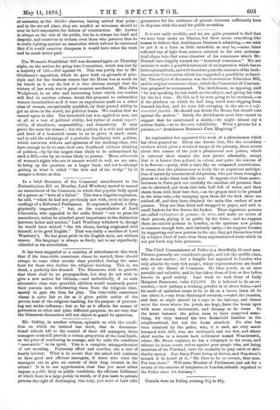It is not easily credible, and we are quite prepared
to find that we have been under an illusion, but there seems something like rumen to believe that Archdeacon Denison is adinitting,—we wish to put it in a form as little incredible as may be,—some faint reflected ray of light from sources external to his own ecclesias- tical clique into that outer chamber of his conscience which Mr. Disraeli once happily termed the "historical conscience." We are anxious to make a guarded statement of an impression which basso little verisimilitude, and will th ere fore quote the sentence ofthe Arch- deacon's in Convocation which has suggested a possibility so fanci- ful. The subject of discussion was the Government Education Bill, and its original conscience clause, which the Committee of Convoca- tion proposed to recommend. The Archdeacon, in opposing, said "he was speaking his last words on the subject, and giving his vote for the last tune. He felt as if he were going to be executed,—as if the platform on which he had long stood were slipping from beneath his feet, and he were left swinging in the air as a self- convicted fanatic. He should not divide the House, but should vote against the motion." Surely the Archdeacon must have meant to suggest that he entertained a doubt,—we might almost say a serious doubt,—as to his own infallibility. What a picture for a painter,—" Archdeacon Denison'a First Misgiving!"






























 Previous page
Previous page